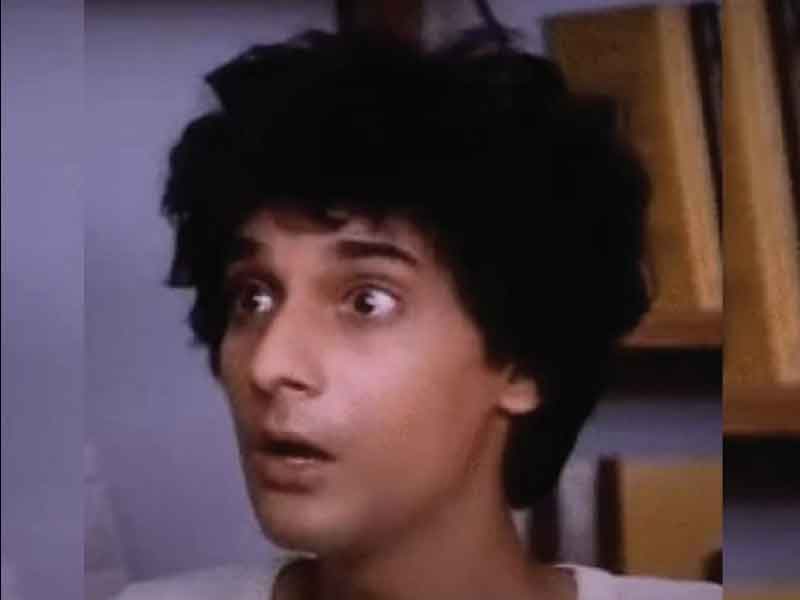
Actor Ranjit Chowdhry, the 'pesky brother', bids goodbye
Actor Ranjit Chowdhry, who passed away on April 15 at the age of 64, endeared himself to Hindi film audiences through memorable performances in films like Khatta Meetha, Baaton Baaton Mein, and Khubsoorat.

Actor Ranjit Chowdhry, who passed away on April 15 at the age of 64, endeared himself to Hindi film audiences through memorable performances in films like Khatta Meetha, Baaton Baaton Mein, and Khubsoorat.
One of those few actors who stood out despite their limited performances, in relatable roles, his demise brings the chapter in Hindi cinema, when ordinary people charmed moviegoers, to a close.
The movies of the 70s had a unique quality — these were plots centered around the lives of the common people. Also known as middle-of-the-road movies, the stories were a fine balance of commercial and parallel cinema — a genre that probably gave Hindi cinema some of its finest movies.
These were tales of the families that lived in a chawl in the teeming metropolis of Bombay; their lives revolved around the local trains they took to work and the many little things they did to stay happy. Amid them was the friend, an uncle who fixed marriages in the family and the doctor uncle, a do-gooder, who solved most complicated problems of the youngsters with out-of-the-box solutions.
It was through these stories that Ranjit Chowdhry walked into our lives—as the violin-playing musician brother to Tina Munim in Baaton Baaton Mein (1979) and the happy-go-lucky youngest son of the family in Khubsoorat (1980).
Related news | Film and TV actor Ranjit Chowdhry passes away at 65
Coincidentally, as Shabi in Baaton Baaton Mein and Jagan in Khubsoorat, he is the pesky little brother—a character he was delightfully good at. With disheveled hair, popping eyes and an angular frame, his witty dialogues summed up the harmlessly eccentric nature he portrayed in his roles.
In Baaton Baaton Mein, he is not just a supporting character, but also a backdrop and background scorer. Practising on his violin, he is seen playing scores to match the mood of the scene—when his mother (played by his own mother Pearl Padamsee) is lamenting to his sister Nancy (Tina Munim) that she wants her to get married as soon as possible.
He slips into a melancholic tune, as he musically empathises with his best friend, who wants to seek Nancy’s hand in marriage, but is hopelessly hesitant about it. Watch him as he says, “Mard ko hamesha apne se lambi aurat se shaadi karni chahiye, agar aurat lambi hogi, toh apni nazrein neechi karke jawab degi aur mard gardan oonchi karke jawab dega (A man should always marry a woman taller than him. If she is taller, she will lower her eyes while answering him and the man will always answer with his head held high).”
Or, as he welcomes Tony (Amol Palekar), when he meets him first, quipping, “Hello, Number two,” much to his sister’s chagrin, as he takes a swipe at her for finding another guy.
Related news | Hrishikesh Mukherjee, master storyteller who made us love all things simple
In Hrishikesh Mukherjee’s Khubsoorat, starring Rekha, he is the black sheep of the family — this time too with his passion for music intact. He is introduced to the audience as the habitual latecomer, who swaggers in for breakfast, confronted by his strict mother (Dina Pathak).
Boasting to be on the dot, he quickly cowers in front of her when she asks him why he hasn’t worn a vest under his top and not combed his hair. He says, “Kangi kee toh thi, darr ke maare khade hai (I brushed my hair, but they are probably standing up due to fear),” leaving the rest of the family chuckling, while the audience roared in laughter.
Often at the receiving end of his dominating mother’s fury over his antics, he is actually the binding force of all family members and is privy to the secretive lives they lead beyond the supervision of the matriarch.
Chowdhry‘s body of works was prolific with his repertoire including American television, theatre, and diasporic films. Yet, he will forever be remembered for the charm of his oddball and innocent characters that have gradually vanished from the cinemasphere.
It is a pity that we will not have Chowdhry and his likes to make us sway crooning, “Uthe sabke kadam dekho rumpum, aji aise geet gayo karo, kabhi khushi aur gham tara rumpumpum haso aur hasaya karo,” any more.


